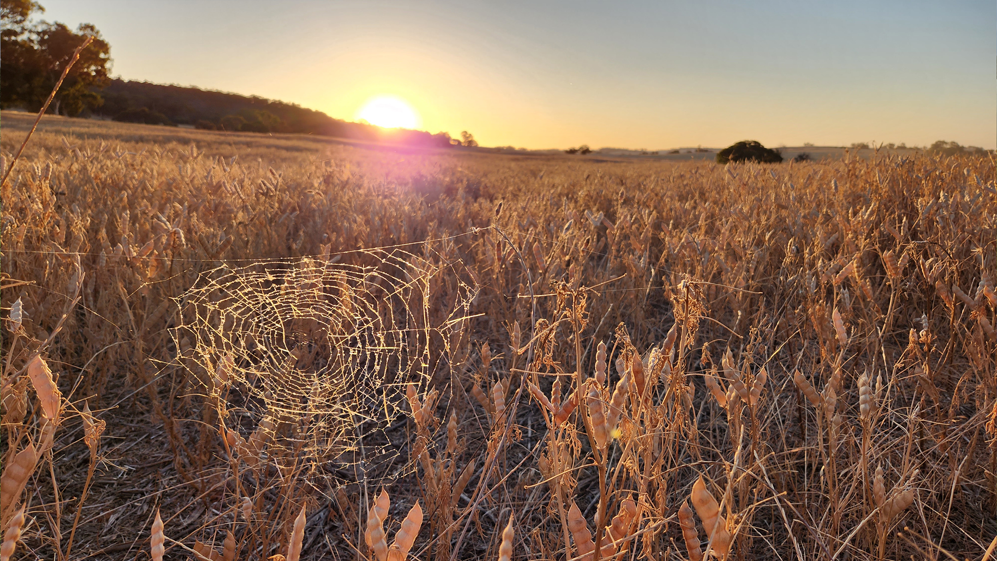
Regenerative Lupins Harvest Update at Quindanning
|
Time to read 2 min
|
Time to read 2 min
Dirty Clean Food Impact Team Farming Relations Coordinator Christie visited Steve Ford at Quindanning in Williams WA for the commencement of their 2023 harvest. A very exciting time for the cover crop crucial to regenerative systems, with some welcome critters along the way.
Steve and Kel Ford are passionate regenerative farmers, farming with Steve's parents at Williams in the south western wheatbelt. They are proud suppliers of oats for Dirty Clean Food Oat Milk and all our other oat products.
Steve Ford and his team have started the 2023 harvest! They have finished their canola and are now churning through the 40 hectares of lupins they are growing this year.
These lupin crops are a great rotation alongside the oats and canola that Steve grows, as they fix nitrogen from the atmosphere into nodules on their roots, which then becomes available for the crop the following season.
The lupins are part of a broader rotation for Steve that includes an oat crop, canola crop and a pasture phase, where multi species pastures are seeded and then grazed off by his sheep.
Steve is working with local contractor Beau to get the crop off this year, as they have been having some issues with their harvester and are waiting on parts and mechanics to get the header up and running again. Long term farm worker Fossy gave me the grand tour this time round and took us up into the harvester to have a look at some of the lupins that are fresh off the paddock.
While taking some progress photos, I was excited to see so many spiders and spider webs in the crop. Although it does make you check your socks more often when walking through the stubble, spiders are a great critter to spot in the crop as they are an apex predator – so lots of spiders means there are lots of other smaller insects living in the crop, which means that the insect food web is thriving.
Spiders themselves serve as important prey for many birds, lizards, and other animals, which contributes to the greater food web that sustains the agro-ecological system – the ecological functions on the farm. When this system is being supported by reducing or eliminating herbicides, pesticides and fungicides, you will see an increase in both soil life, and the creatures living above the soil.
Maintaining groundcover helps to create habitat for these insects, so Steve has been working to keep crop residue on the surface of the ground. Keeping the soil covered year round also reduces runoff, reduces evaporation from the soil, and keeps soil temperatures lower in the hot weather.
Next week Steve and his team will be onto harvesting their oats, so we’ll head out again to see how the next crop is looking!




